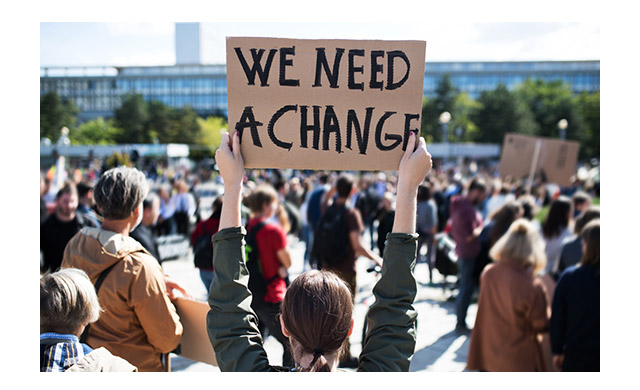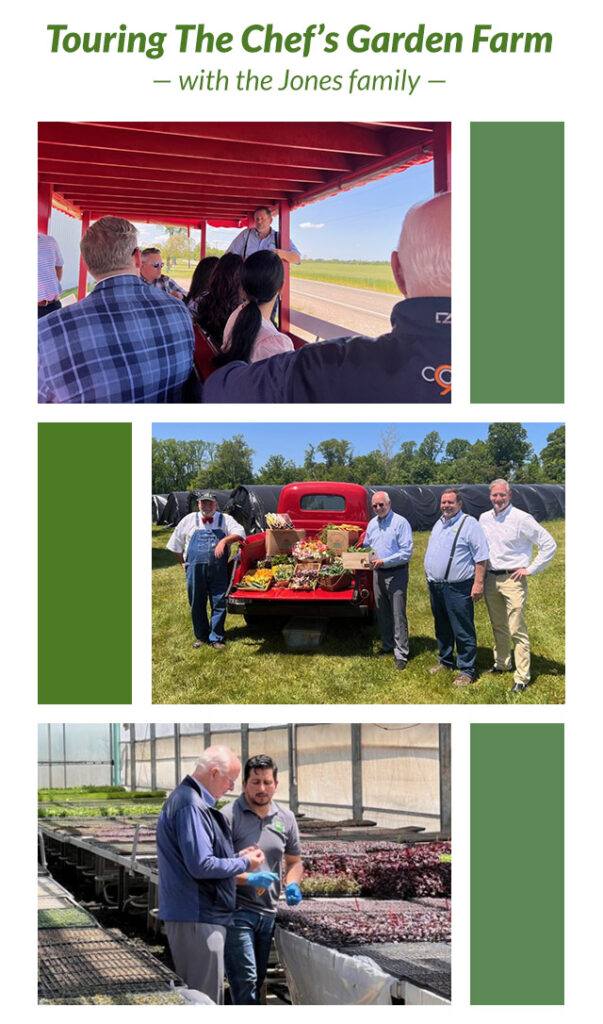My Personal Journey to Learn About Climate Change
Join Jim McCann as he learns about climate change and ways everyone can help solve the problem.
Sep 16, 2023
Written by our Founder and CEO, our Celebrations Pulse letters aim to engage with our community. By welcoming your ideas and sharing your stories, we want to help you strengthen your relationships with the most important people in your life.
We are in a climate crisis, and it’s only getting worse.
This summer, wildfires raged on Maui and claimed the lives of over 100 people. Extreme heat baked a large part of the country while a rare tropical storm pounded the Southwest. And as I write this, Hurricane Lee – one of the most powerful storms in history – is swirling off the East Coast.
I’ve been on a journey for the last several years to learn as much as I can about climate change. A few years ago, I wasn’t so sure about it, but my thinking changed after speaking with friends and colleagues who study the environment and sustainability issues. I now realize that climate change is happening now, and we must do all that we can to address it.

Why do I care? For starters, I love my seven grandchildren and the lives they will lead. As they grow older, I think a lot about where the road of life will take them and whether they will have a healthy planet, or even a healthy New York. They’re thinking this summer represents the new normal - and that’s not a good thing.
Taking care of the Earth
Modern agriculture is one of the largest contributors to climate change. And farming practices have led to a deterioration in soil quality that’s impacted the level of nutrients in food. In fact, studies have shown that fruits, vegetables, and grains grown today carry significantly fewer vitamins than those grown just 70 years ago.
I learned of this first-hand while visiting Farmer Lee Jones and his family at The Chef’s Garden in Huron, Ohio. For over 30 years, their family farm has embraced sustainable farming practices that replenish the soil, resulting in vitamin-rich vegetables, microgreens, herbs, and more.
During my visit, Farmer Lee proudly showed some of the techniques, such as the use of cover crops like alfalfa, buckwheat, oats, rye, and sorghum. They’re not grown for human consumption, but rather to feed the soil and control weeds without pesticides. They’re planted as soon as the main crop is harvested, and at any given time, two-thirds of the Jones’ fields are growing cover crops.

What’s more, cover crops capture carbon in the atmosphere and store it in the plants and soil. Researchers have found that if such crops were planted across 20 million acres, it would offset the emissions from nearly 13 million passenger vehicles – that’s nearly equivalent to every registered automobile in the entire state of California (14.2 million).
Farmer Lee notes that while The Chef’s Garden is pioneering regenerative farming today, it’s not the first to do so. In fact, many of the techniques were developed hundreds of years ago before mass food production took off. The goal of The Chef’s Garden is to build a template that can be used by future farmers.
“We want to be as good as farmers were 100 years ago.”
Farmer Lee Jones
A difference in taste
The Chef's Garden is world-renowned for supplying vegetables to many of the country's finest restaurants, and I'm proud Harry & David has partnered with them to make the same selection available to our customers.
During my visit, I not only had a chance to tour the fields but also taste the results. In one greenhouse, I sampled a variety of flavorful microgreens that had just been plucked from the soil. Later, I sat down with the Jones family for a dinner that included equally delicious vegetables and a selection of grass-fed beef from Harry & David and Vital Choice.
The visit to Ohio reminded me of why I was also attracted to (and we acquired) Vital Choice. From its beginning in 2001, it has supported sustainable, wild-caught fish and seafood and advocates for strong ocean protections. Clean seas are vital to the health of the seafood we consume.
My continuing education
This week, I’m participating in the annual Techonomy climate conference in New York City. It’ll focus on how governments, investors, businesses, and other groups can work together on solutions to the climate crisis. It’s also a chance for me to learn more about this critical issue, and ways where we, as a company, can help by doing our part to help.
It won’t get better until we start doing something collectively, even if that’s taking baby steps at first. For me, the soil and the sea are good places to start.
All the best,
Jim








